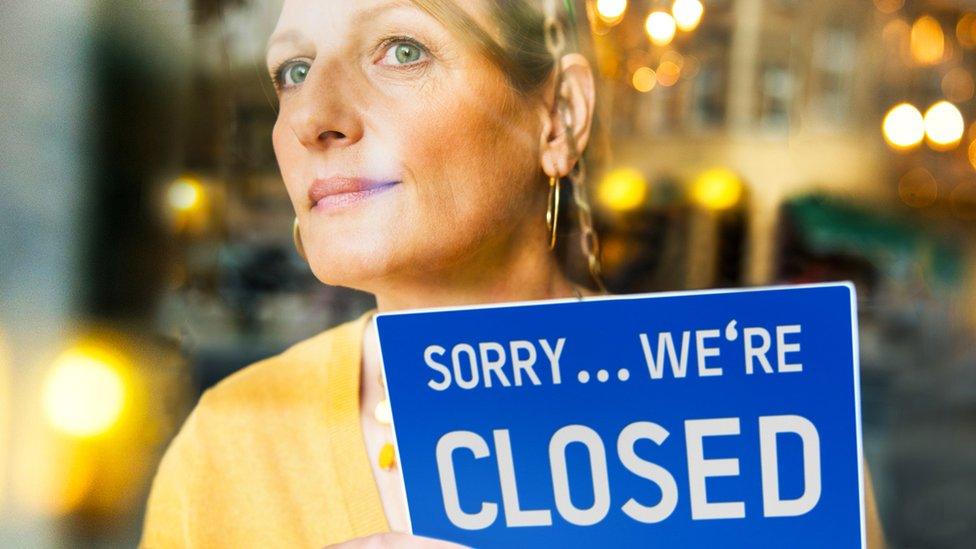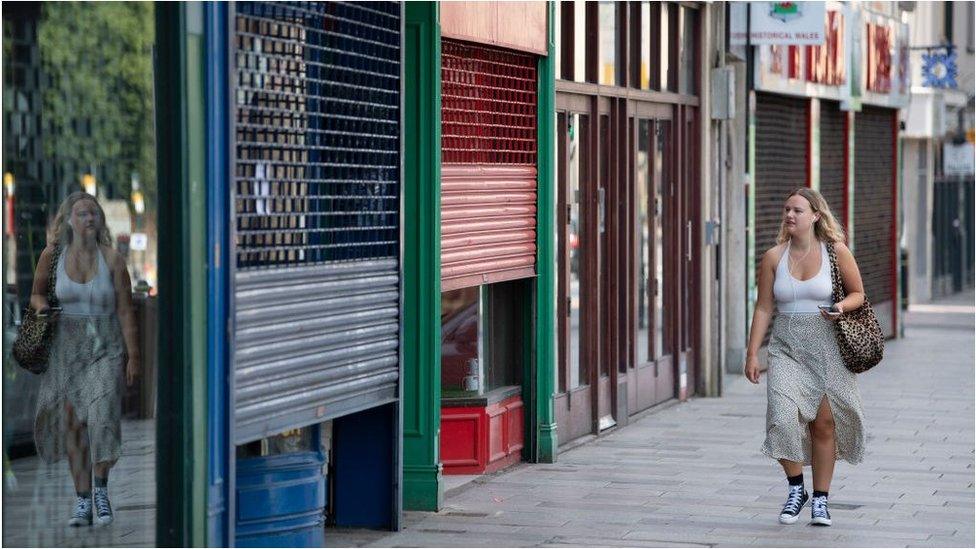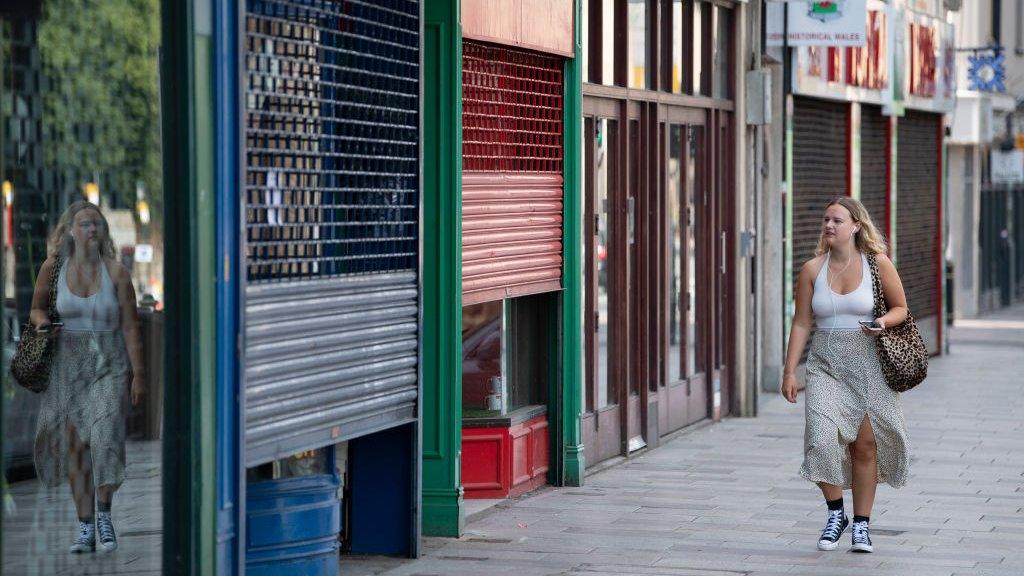Redundancy pay to be protected for furloughed workers
- Published
- comments

Furloughed workers losing their jobs will be eligible for redundancy pay based on their normal wages - not the furlough rate - from Friday.
The government said a minority of firms had taken advantage of the current crisis to pay a lower rate.
The new law will ensure workers get their full pay-off, said Business Secretary Alok Sharma.
"It is important that employees receive the payments they are rightly entitled to," he said.
Workers with more than two years continuous service who are made redundant are usually entitled to a statutory redundancy payment that is based on length of service, age and pay, up to a statutory maximum.
But many of the UK's 9.5 million furloughed workers are being paid at 80% of their normal wage.
"The government is doing everything it can to protect people's livelihoods," said Mr Sharma.
"New laws will ensure furloughed employees are not short-changed and are paid their full redundancy pay entitlement - providing some reassurance in an undeniably testing time."
Rights
The new law will also apply to statutory notice pay, which is where employees must be given a notice period before their employment ends.
It varies from at least one week's notice up to 12 weeks' notice, depending on how long they have worked for their employer. During the notice period, employees must be paid.
The legislation will ensure that notice pay is based on normal wages rather than the lower wages they may have been paid under the Coronavirus Job Retention Scheme.

There are reports that closing the furlough scheme could lead to a 10% unemployment rate
Other changes coming into force will ensure basic awards for unfair dismissal cases are based on full pay rather than wages under the furlough scheme.
"We urge employers to do everything they can to avoid making redundancies, but where this is unavoidable it is important that employees receive the payments they are rightly entitled to," said Mr Sharma.
Redundancies
An estimated 150,000 people have so far been made redundant during the coronavirus crisis, but experts expect the figure to climb much higher, especially after the furlough scheme ends in October.
Earlier this week the National Institute of Economic and Social Research think tank warned that the ending of the furlough scheme could lead to 1.2 million Britons being unemployed by Christmas, pushing unemployment to 10% of the workforce.
Under the furlough scheme workers have 80% of their salaries paid for by the government - up to £2,500 a month.
The scheme is being wound down from August when businesses will have to pay National Insurance (NI) and pension contributions.
From September, they will have to pay 10% of salaries, plus NI and pension contributions.
In October, businesses will have to pay 20% of salaries, plus NI and pension contributions, before the scheme finishes at the end of that month.
TUC General Secretary Frances O'Grady said paying people full redundancy "is the right thing to do" but said the government must be focused on stopping job losses in the first place.
"Prevention is better than the cure," she said. "We urgently need targeted support for hard-hit industries, and an extension of the furlough scheme beyond October for those who need it.
"Without this, we risk an avalanche of redundancies in the autumn and undermining the economic recovery."
- Published28 July 2020

- Published30 September 2021

- Published17 July 2020
